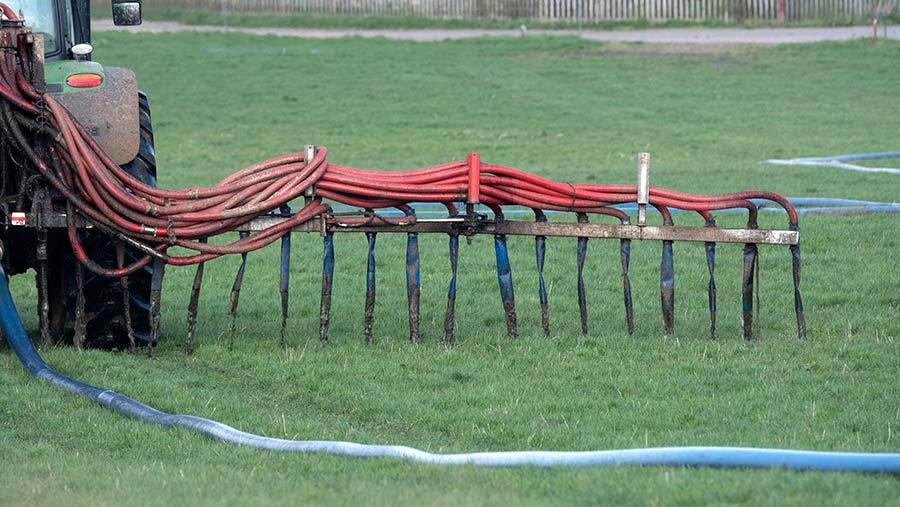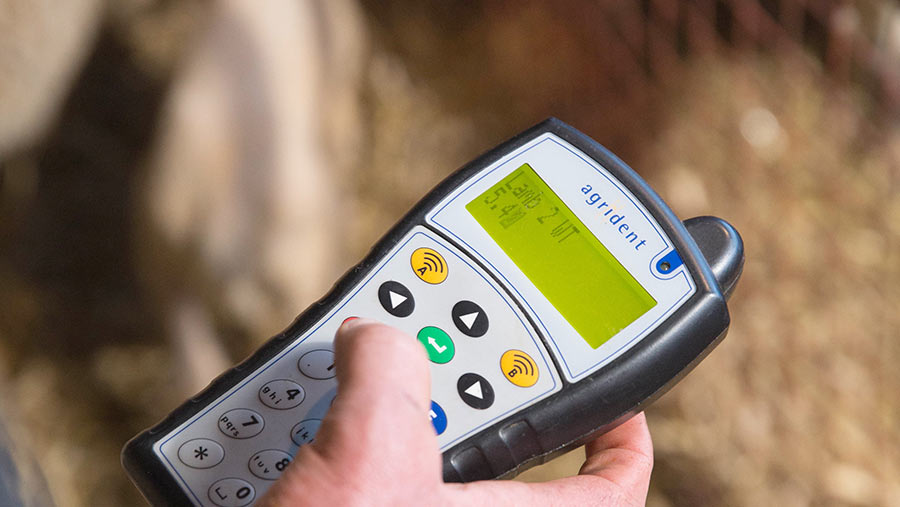£15m small grants scheme opens – what’s eligible and how to apply
 © Tim Scrivener
© Tim Scrivener Farmers have eight weeks to apply for funding under the second round of Defra’s Countryside Productivity Small Grants scheme.
The scheme, which was previously promised for early 2019, finally opened for applications on 9 July.
It offers farmers in England grants of between £3,000 and £12,000 to invest in specific pieces of agricultural equipment.
More than 80 items are eligible for funding, with the aim of improving technical efficiency, animal health and welfare, resource efficiency or nutrient management.
Scheme basics
The grants cover up to 40% of the cost of equipment (up to 50% in Cornwall and the Isles of Scilly).
See also: Environmental land management scheme – what we know so far
This means that the minimum value of kit purchased is £7,500 and the maximum is £30,000. Multiple items can be included on one application.
“The Countryside Productivity Small Grants Scheme is designed to encourage investment in equipment that will help farmers to make their business more resilient and environmentally sustainable,” said Sebastian Murray, farming consultant with Strutt & Parker.
“At a time when the government has made it clear it expects farmers to become more self-reliant and, at the same time, reduce farming’s environmental impact on water, soil and air quality, this is a valuable opportunity.”
What’s new?
The list of eligible equipment includes 26 items added since the scheme last ran in early 2018.
Nitrogen-measuring devices for calculating fertiliser application for crops are now included, along with GPS light bars, GPS auto steer, cover crop rollers, portable ammonia analysers, vaccination guns, robotic slurry pushers, cameras for monitoring livestock and EID panel readers for sheep and cattle.
Why is it worth a look?
The scheme is straightforward, with a single-stage online application process, as long as applicants are registered with the Rural Payments Service.

The guidance notes include a standard price for each item, which determines the grant payable © Tim Scrivener
Items eligible for funding are listed in guidance notes with a standard cost – which is the maximum fixed price towards which Defra will pay the grant. This means there is no need to provide quotes for items.
What is the application and claim process?
All applications are assessed by the Rural Payments Agency, with those scoring highly enough offered a funding agreement.
Applications close on 3 September and can be withdrawn at any time. The RPA aims to pay out within 30 days of receiving proof of a claim.
Application tips
- Grant recipients have 150 days from the date of their funding agreement to purchase, take delivery of and pay for the grant-funded equipment and submit their claim. In the previous round this proved problematic as the supply and delivery times for some pieces of livestock-handling kit were longer than this. Speak to the manufacturer about supply and delivery times before submitting an application.
- Do not order or buy any of the items in your application before accepting a funding agreement. If a grant has been approved, items chosen cannot be changed and all items selected must be bought if you wish to proceed with the claim.
- A claim can be submitted only after all the equipment has been bought and paid for, so cashflow will be needed to allow for this.
- Make sure that equipment meets the specification set out in the handbook. The guidance notes are brief, so it may be necessary to speak to the supplier to double-check. Alternatively, email CPSGEnquiries@rpa.gov.uk with the make and model and a link to the supplier’s website so they can confirm.
- When submitting the claim form, attach copies of invoices for each item and bank statement copies proving the items have been paid for. The invoice must show each item claimed individually, with details of make and model. Double-check that the money has left your bank account before submitting your claim. If the invoice makes no reference to the specification of the machine, the RPA is likely to seek clarification.
- Farmers who successfully applied in round one can apply in round two, but the total value of both applications must not be more than £12,000.
